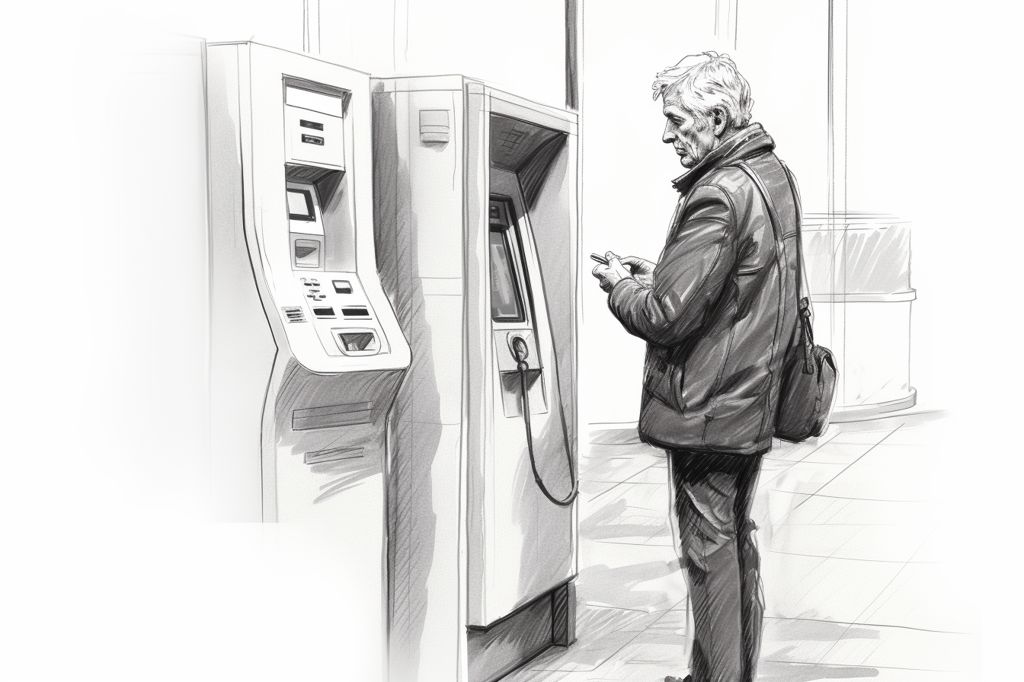The SASSA agency’s failure to distribute social grants on time has left many vulnerable individuals in a precarious situation. Allegations of misinformation and breaches of human rights have been made against the agency’s National Minister for Social Development, Lindiwe Zulu, who has been accused of concealing the true reasons behind the delays. The issue has highlighted the importance of social grants and the need for greater transparency and accountability in the system. Moving forward, it is crucial that SASSA, Postbank, and the relevant government departments collaborate to fortify the payment system and ensure its dependability.
The South African Social Security Agency (SASSA) recently came under intense scrutiny for its inability to disburse social grants on schedule, leaving numerous vulnerable individuals in a precarious situation. In light of allegations of misinformation and breaches of human rights, we delve deeper into the core issues and examine the factors that led to this crisis.
The Allegations
National Minister for Social Development, Lindiwe Zulu, found herself at the center of accusations for concealing the true reasons behind SASSA’s tardiness in distributing social grants. Zulu cited technical difficulties as the main source of the delays. However, Western Cape Minister for Social Development, Sharna Fernandez, vehemently disagreed with this explanation during a provincial legislature session. Fernandez claimed that Zulu failed to reveal the critical detail that Postbank, a central player in the grant payment system, had received a notice for non-payment of R84 million, which caused the switching service provider to halt their services.
The Legal Battle and Human Rights Issues
Fernandez mentioned that Postbank sought to rectify the situation through legal channels, but the switching company insisted they were unprepared to provide the service. This dispute added to the turmoil, leaving innumerable social grant recipients without their essential financial aid.
The Democratic Alliance filed a grievance with the South African Human Rights Commission (SAHRC), accusing Postbank, SASSA, Zulu, and her department of human rights violations. The SAHRC convened with SASSA to guarantee that the ongoing crisis would not recur in subsequent payment cycles.
The Impact on the Elderly and Postbank’s Response
Among those most severely affected were thousands of older adults who were unable to access their monthly SASSA grants via ATMs or Postbanks. Although the issue was ultimately resolved, a lingering backlog continued to deny a sizeable segment of elderly recipients access to their funds.
Dr. Bongani Diako, the spokesperson for Postbank, confirmed that their grant payment system had regained stability after being reinstated. However, he conceded that persistent backlogs meant some SASSA grant recipients, including retirees, would have to wait until the next day to access their funds.
The Broader Implications
This debacle has not only revealed operational shortcomings within SASSA and its partner entities but also highlighted the crucial role of social grants in South African society. A large number of vulnerable individuals, especially the elderly, depend heavily on these grants as their main source of income. Any disruption in the payment system can lead to disastrous outcomes, as observed in this recent crisis.
The Importance of Transparency and Accountability
Given the allegations and the potential impact on South Africans’ human rights, it is critical that the organizations involved in social grant distribution maintain transparency and take responsibility for their actions. Misleading the public and deflecting blame do not serve the interests of the people who depend on these funds for their livelihoods.
Strengthening the System for the Future
It is vital that, moving forward, SASSA, Postbank, and the relevant government departments collaborate to fortify the social grant payment system and guarantee its dependability. This may entail reevaluating existing partnerships, addressing financial and operational weaknesses, and developing robust contingency plans for potential technical or administrative issues in the future.
The recent SASSA debacle has emphasized the importance of social grant payments in the lives of many South Africans, but it also offers an opportunity for reflection and enhancement. By promoting greater transparency, accountability, and cooperation, the involved authorities can work towards preventing a recurrence of this crisis and protecting the well-being of social grant beneficiaries across the nation.
1. What is the SASSA Debacle?
The SASSA Debacle refers to the recent crisis surrounding the South African Social Security Agency’s failure to distribute social grants on time, which has left many vulnerable individuals in a precarious situation.
2. Why was Lindiwe Zulu accused of concealing the true reasons behind the delayed social grant payments?
Lindiwe Zulu, the National Minister for Social Development, was accused of concealing the true reasons behind the delayed social grant payments because she cited technical difficulties as the main source of the delays, while failing to reveal that Postbank had received a notice for non-payment of R84 million, which caused the switching service provider to halt their services.
3. What legal battle and human rights issues arose from the SASSA Debacle?
The Democratic Alliance filed a grievance with the South African Human Rights Commission (SAHRC), accusing Postbank, SASSA, Zulu, and her department of human rights violations. The SAHRC convened with SASSA to guarantee that the ongoing crisis would not recur in subsequent payment cycles.
4. How were elderly social grant recipients affected by the SASSA Debacle?
Thousands of older adults who were unable to access their monthly SASSA grants via ATMs or Postbanks were severely affected by the SASSA Debacle. Although the issue was ultimately resolved, a lingering backlog continued to deny a sizeable segment of elderly recipients access to their funds.
5. What are the broader implications of the SASSA Debacle?
The SASSA Debacle has revealed operational shortcomings within SASSA and its partner entities and highlighted the crucial role of social grants in South African society. A large number of vulnerable individuals, especially the elderly, depend heavily on these grants as their main source of income.
6. Why is transparency and accountability important in the social grant payment system?
Given the allegations and the potential impact on South Africans’ human rights, it is critical that the organizations involved in social grant distribution maintain transparency and take responsibility for their actions. Misleading the public and deflecting blame do not serve the interests of the people who depend on these funds for their livelihoods.
7. How can the social grant payment system be strengthened for the future?
Moving forward, SASSA, Postbank, and the relevant government departments must collaborate to fortify the social grant payment system and ensure its dependability. This may entail reevaluating existing partnerships, addressing financial and operational weaknesses, and developing robust contingency plans for potential technical or administrative issues in the future.
8. What is the current status of the social grant payment system?
According to Dr. Bongani Diako, the spokesperson for Postbank, their grant payment system had regained stability after being reinstated. However, persistent backlogs meant some SASSA grant recipients, including retirees, would have to wait until the next day to access their funds. The SAHRC has convened with SASSA to guarantee that the ongoing crisis would not recur in subsequent payment cycles.








